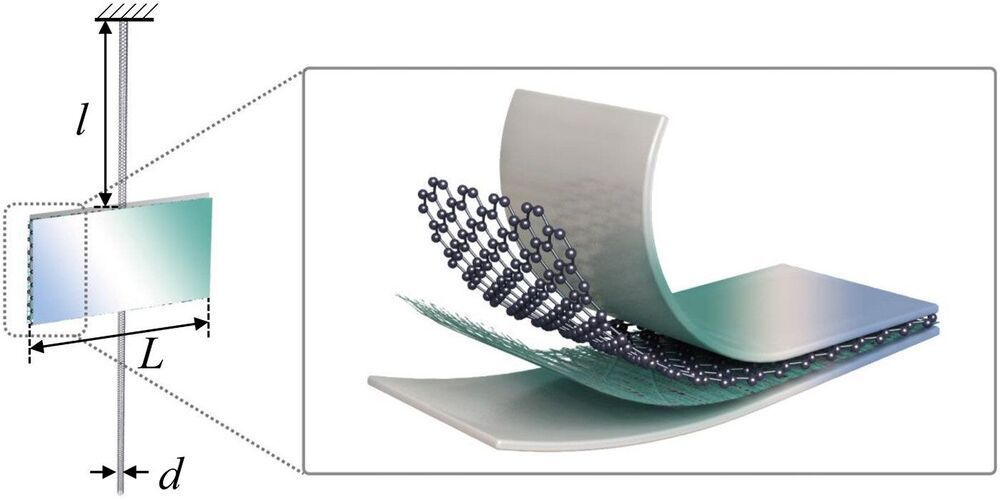The torsion balance contains a rigid balance beam suspended by a fine thread as an ancient scientific instrument that continues to form a very sensitive force sensor to date. The force sensitivity is proportional to the lengths of the beam and thread and inversely proportional to the fourth power of the diameter of the thread; therefore, nanomaterials that support the torsion balances should be ideal building blocks. In a new report now published on Science Advances, Lin Cong and a research team in quantum physics, microelectronics and nanomaterials in China have detailed a torsional balance array on a chip with the highest sensitivity level. The team facilitated this by using a carbon nanotube as the thread and a monolayer graphene coated with aluminum films as the beam and mirror. Using the experimental setup, Cong et al. measured the femtonewton force exerted by a weak laser. The balances on the chip served as an ideal platform to investigate fundamental interactions up to zeptonewton in accuracy.
A modern role for ancient scientific instruments
The torsion pendulum is an ancient scientific instrument used to discover Coulomb’s law in 1785 and to determine the density of Earth in 1798. The instrument is useful across a range of applications including existing scientific explorations of precisely determining the gravitational constant. The most efficient method to achieve high sensitivity in the setup is by reducing the diameter of the suspension thread as much as possible. For instance, in 1931, Kappler et al. used a centimeters-long thread to develop a highly sensitive torsion balance to set a record for a hitherto unattained intrinsic force sensitivity. At present, carbon nanotubes form one of the strongest and thinnest materials known. In this work, the team synthesized ultra-long carbon nanotubes (CNTs) and large-area graphene to substantially increase the lengths of the balance beam and suspension thread to significantly improve the sensitivity of the instrument.
